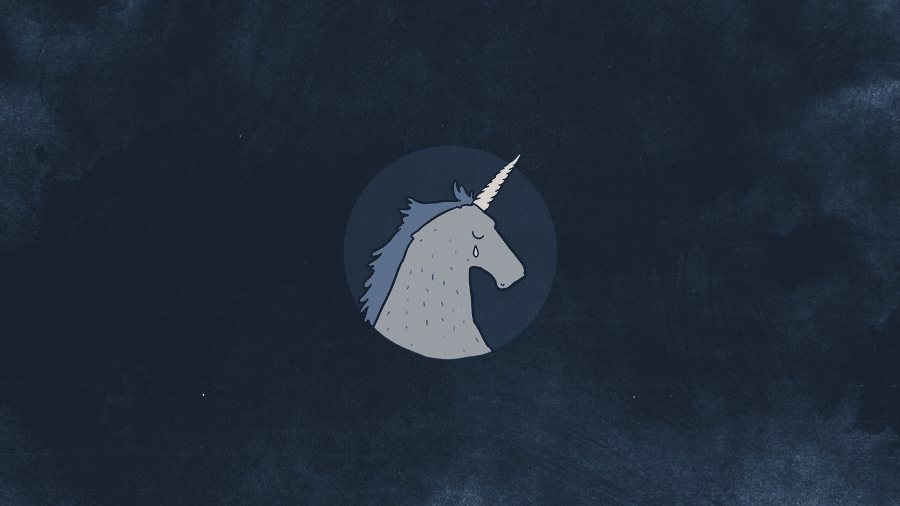By Matthew Cowan, a general partner at Next47, a global venture firm created by Siemens that invests in, and partners with, entrepreneurs. It has offices in Beijing, Munich, Palo Alto, Paris, Stockholm and Tel Aviv.
The volatility caused by COVID-19 is like nothing we have faced before. The pace in which things are changing is neck breaking. Yet some of those changes started out as small shifts before any of this even began.
A string of recently failed IPOs raised a red flag on the mythical unicorn. Then concerns of the impact of COVID-19 began and those red flags turned into blaring alarms for many startups as they realized the approach modeled by many unicorns would be unsustainable in this environment.
Subscribe to the Crunchbase Daily
When the term “unicorn” was coined in 2013, it was based on the idea of the likelihood that a startup would reach the $1 billion-plus valuation–at that time, a rare thing with just 39 companies meeting the criteria. Since then, the number of unicorns has quickly grown to more than 460, and the term has evolved into a mindset about how a company chases after that coveted valuation.
While head-spinning valuations make for great headlines, challenges facing the tech economy indicated a shift in this “growth at all costs” mindset for a while. With economic uncertainty looming, the shift accelerated, and it’s no surprise as startups look to how they can survive an increasingly likely drought.
Soon, unicorns will become myths once more as we see the rise of the “camel.”
The rise of the camel
A camel, when referring to startups, is essentially a company with the following characteristics:
- Resilient–they are preparing for the future through thoughtful, strategic growth.
- Cautious–they maintain reserves to help get through tough times and replenish during the good. Their value lies in being financially conservative, hiring the right team, and focusing on building the technology that will revolutionize their industries.
- Committed–they are dedicated to business-building fundamentals and stress positive unit economics early on, and every day, to ensure impact on long-term success.
- Customer focused–the products they deliver and business models are all driven by customers needs.
With the coronavirus pandemic hitting the startup industry hard, the number of deals taking place is going to decline. VCs will certainly continue to look for the next great startup, but it is going to be harder to secure funds than before. For those who haven’t taken on a camel mindset, the time to do so is now.
Three areas to focus on as you look toward growing resiliency:
- Adapt your plans.
In the era of COVID-19, startups will need to adapt their plans to focus on optimizing for stability, sacrificing quick growth for measured growth and positive unit economics. Leaders will need to be more open-minded to alternate approaches and explore partnerships that seemed impractical pre-COVID-19. This landscape has changed the rules of the game and being more open to new ways to reduce costs and improve profitability can make all the difference. Whether that is shifting from building a manufacturing facility to outsourcing production to become less capital intensive, or identifying new offerings that can help address needs created by the virus, or shifting your focus to healthier markets—find where your business can thrive in this environment.
In addition to improving stability, these adjustments will help your cash last longer and attract investors that can help you continue forward momentum.
- Maintain and build the best talent.
A recent count of layoffs since the outbreak of the virus found that 36 private unicorn companies had laid off staff. The number let go represents nearly half of all reported layoffs for private companies. For some, layoffs might be inevitable, but for now, the first thing to do is to consider a hiring freeze. If that does not give you the breathing room you need, the most important thing is the survival of the company. If it does come to reducing your workforce, be cautious not to make any knee-jerk reactions by making drastic cuts.
Later, as you begin to evaluate when it makes sense to onboard new talent, it must be done extremely thoughtfully. Over-correcting can land you right back into the danger zone.
- Think of your investor relationship like a marriage.
The startup/investor relationship is much like a marriage, without the possibility of divorce. Like a successful marriage, the relationship you forge with your investor should be an enabler for long-term growth. As you continue to work with your investors and consider future partnerships, focus on those that can help you be the most strategic, rather than just reaching the largest valuation.
Investors shouldn’t just write a check and provide a little advice—they need to be partners that are hands-on, who not only know your business, but roll up their sleeves to help generate new revenue opportunities, maintain growth and manage overhead. Their partnership should have a focus on helping resiliency grow. A knowledgeable partner can be an oasis in the desert, opening doors, knocking down obstacles, and offering deep expertise.
As startups begin to reevaluate how they maintain and grow their businesses, the most important step is to not lose sight of the long-term. Achieving a valuation of $1 billion-plus is a founder’s dream, but ensuring the health, resiliency and success of the businesses should be the No. 1 priority. In this economic downturn and beyond, embracing the camel mindset could make all the difference in building a company that lasts for generations.
Illustration: Li-Anne Dias.

Stay up to date with recent funding rounds, acquisitions, and more with the Crunchbase Daily.





![Illustration of a guy watering plants with a blocked hose - Global [Dom Guzman]](https://news.crunchbase.com/wp-content/uploads/quarterly-global-3-300x168.jpg)
67.1K Followers